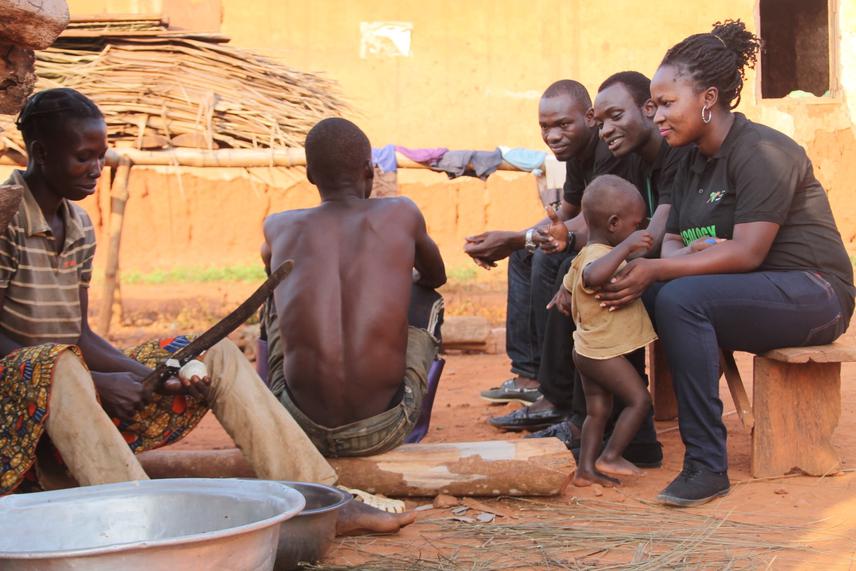David Amaning Kwarteng
Other projects
6 Feb 2012
Mitigating Biodiversity Extinctions in Ghana: The Case of Hyperolius bobirensis
21 Oct 2013
Imminent Actions for the Conservation of the Endangered and Endemic Bobiri Reed Frog, Eastern Ghana I
6 Oct 2015
Imminent Actions for the Conservation of the Endangered and Endemic Bobiri Reed Frog, Eastern Ghana II
Bobiri Reed frog is endangered, endemic to Ghana and highly threatened from reduction in quality and extent of its habitat, following over exploitation for non-timber forest products, illegal logging and poaching. The only known viable population of the species is currently confined to a single pond at the Atewa forest. Currently, only less than 300 individuals of the species persist. The aim of this project is to drastically reduce the dependence of local communities on the species habitat. The project will therefore provide alternative livelihood options for community members. This include bee-keeping and cane rat rearing. The project also aims to raise local conservation champions who will serve as ambassadors for conservation in their communities. In addition, we aim to form five community conservation groups to complement on the ground conservation efforts. Lastly, we aim to escalate conservation awareness and education about the plight of the species.

The Bobiri reed frog (Hyperolius bobirensis) is locally extinct from the habitat where it was first described (Bobiri Forest Reserve) in Ghana. The only viable population of the species now occurs at a single pond at the Atewa Upland Evergreen forest. However, this population faces threats from habitat destruction due to unregulated exploitation for non-timber forest products from the species habitat. Our previous RSG projects have achieved remarkable success in increasing the species population through improvement in the species habitat, raising community conservation awareness and building capacity for behaviour change. In order to sustain our conservation impacts, there is the need to drastically reduce local dependence on the species habitat, increase conservation awareness and capacity building and continue to monitor the population of the species.
This project will build on our first booster project by providing start up materials for locals who were previously trained on various alternative livelihoods incomes sources. The project will further train more locals to benefit from such alternative livelihood initiatives. This project will further intensify conservation education and awareness programs in key threat hotspots. Importantly, the project will monitor the species population to inform long term conservation planning and management.